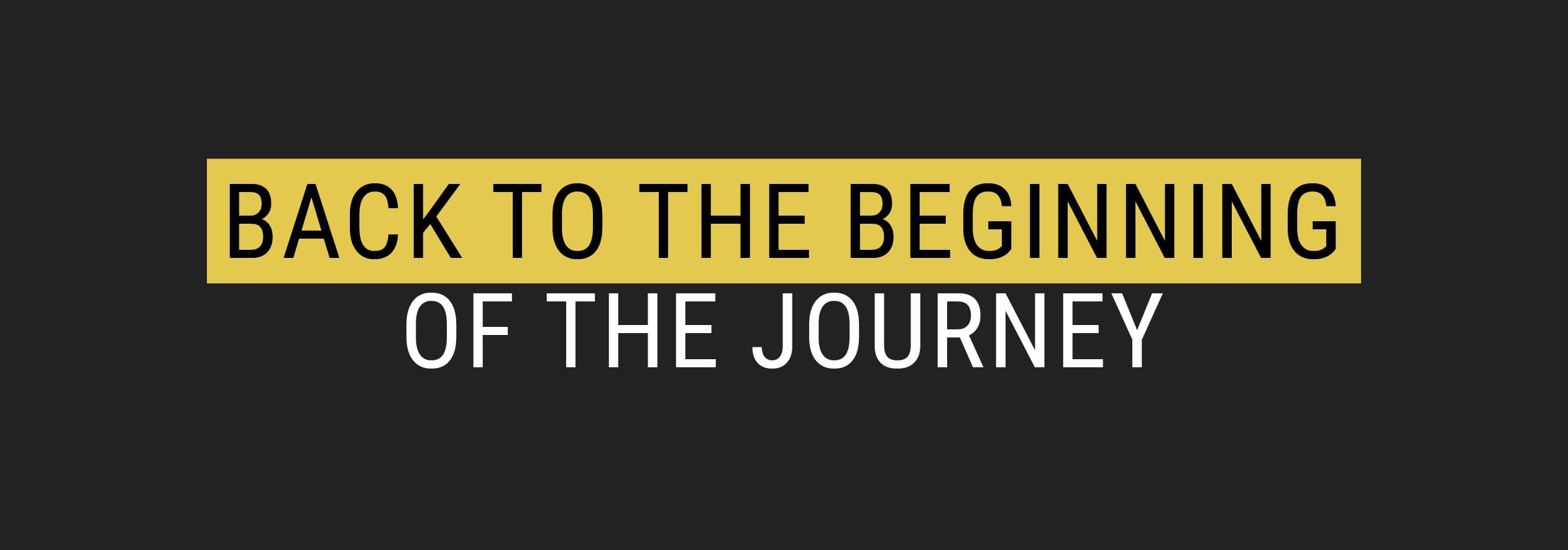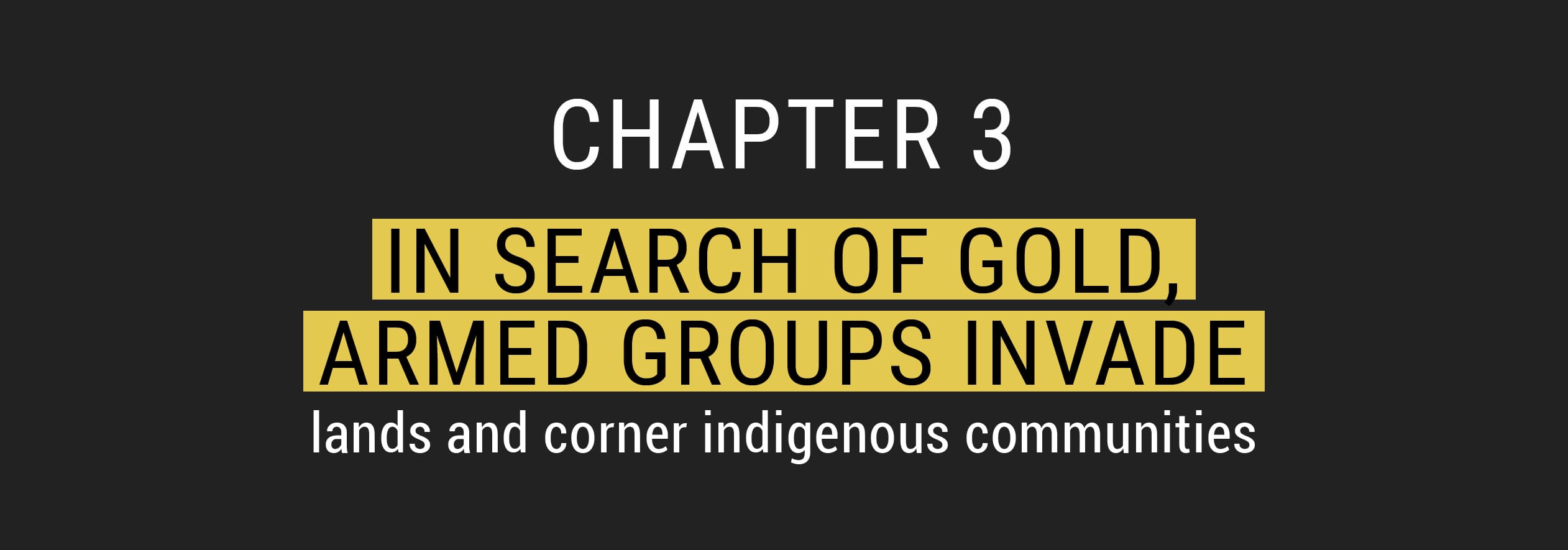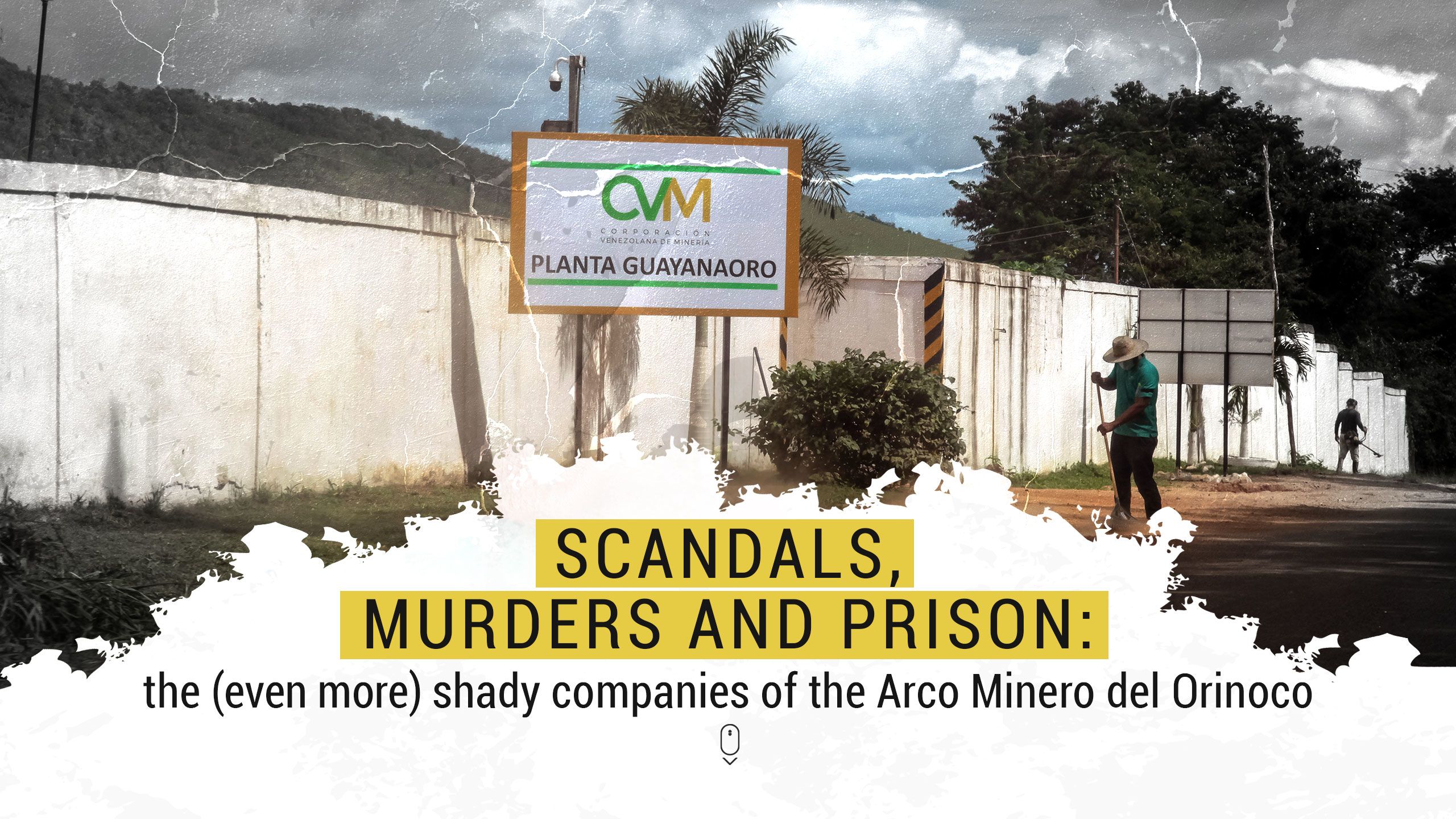
An alleged frontman who is detained in the United States, a businessman victim of a hitman, a couple of names linked to former “mafias” of Guayana. The following chapter uncovers the story of five firms questioned for issues that go beyond their lack of transparency.
In the almost 112 thousand kilometers of extension of the Arco Minero del Orinoco, there are companies that, beyond the lack of transparency with which they were registered and act, have been involved in the controversy. Its owners, with whom the State signed strategic alliances, have been involved in legal disputes, pacts with armed gangs, persecutions by foreign governments and have even been victims of contract killings. In most cases, the Executive has remained silent about these controversial characters who became its partners in exploiting the nation's gold.
One of these stories of scandal is that of GuayanaOro, a company that still displays its sign in the La Gran Prueba sector of Nacupay, in the municipality of El Callao. Behind this was Leonardo Santilli García, a 49-year-old Italian-Venezuelan businessman killed on the morning of September 1, 2020 in the parking lot of a well-known Venezuelan pharmacy chain in Lechería, Anzoátegui state. He had just made a purchase there and had returned to his Toyota 4Runner when a pair of motorists approached him and unloaded eight bullets. The event, however, was only the tip of an iceberg that hid stories of corruption in PDVSA, money laundering and trials in the United States.
Motorizados asesinan de múltiples disparos al empresario zuliano Leonardo Santilli en Lechería, estado Anzoátegui. El suceso tuvo lugar en el área del estacionamiento de Farmatodo, cuando fue sorprendido por sujetos a bordo de una moto Kawasaki KLR-650 pic.twitter.com/aTOqe9nwKD
— Eleazar Urbaez (@FEDGLOCK) September 1, 2020
The case of Santilli's death was resolved in record time. A day after his assassination, the Attorney General of the Republic appointed by the national constituent assembly of Nicolás Maduro, Tarek William Saab, publicly issued instructions to investigate the case, and two weeks later he announced the arrest of the six perpetrators and masterminds of the assassination. According to him, a man named Nicola Romano García owed the victim a million dollars and, in order not to pay, decided to have Santilli killed in association with the brothers Aníbal and Amílcar Macayo Chacín. They contacted Ender Vera Pineda, José Burkooitz Flores and José Guzmán Rojas, who served as the executors of the plan along with Joel José Mariño Córdova, who died in a confrontation before being caught. The former official of the Municipal Police of Guanta (Poliguanta), Edward Solano Pereira, acted as an accomplice. After a year, all were sentenced to between six and 30 years in prison.
When this happened, Santilli had already made headlines. The contractor of Petróleos de Venezuela (PDVSA) was being investigated by the US Department of Justice for allegedly having participated in a money laundering and overpricing scheme through his business with the state company between 2014 and 2017. US prosecutors reported that Santilli owned at least four companies, two in the state of Florida (USA) and two in Venezuela, which served as intermediaries in the supply of goods of different nature to PDVSA subsidiaries.
"In total, Santilli's companies received about 150 million dollars in inflated contracts, of which more than 100 million dollars were transferred to their personal or family accounts, trust accounts, false companies and of other Venezuelan citizens," indicates a note from the web platform specialized in databases Sayari.
According to the online database of companies in the world, Open Corporates, Santilli García was a member of the board of directors of at least six companies registered in the state of Florida, United States: Padale, LLC (Weston), Cosaco and 2377 Glendon. LLC (both at the same address in Sunrise). They were all created in mid-2016. His name also appears in the Corporación Empresarial Alimentos del Sur Sociedad Anónima, Ceassa, in Panama.
In addition, he was the president of GuayanaOro, a company that appears in the bank of mining projects created by the Ministry of Eco-Mining Development, although it is not in the National Registry of Contractors. Despite this lack, the company signed a strategic alliance with Corporación Venezolana de Minería, S.A., through an operation contract aimed at "the development of activities for the benefit and transformation of gold sands through the process of hydrometallurgy by cyanide leaching, with capacity for 200 tons per day of primary material," says the ministry. Its main objective had this relationship in sight and that is why it accepts the Law of Partial Reform of Decree No. 2.165 that reserves to the State the Activities of Exploration and Exploitation of Gold, as well as the Related and Auxiliary to them, in order to "share productive processes" in gold, coltan and other associated mineral deposits.
Santilli did not act alone. The other partner was Jean Carlos Ranauro Guzmán, a 42-year-old businessman from Tumeremo, owner of a company in Doral, Florida, called Global Trade Metals Inc., created in October 2017 together with Antwill José Salazar Zambrano, also 42 years old but from Ciudad Guayana, owner of companies in Panama.
At the forefront of the scandal
Before Santilli's scandalous life became known, another mining company had fallen into disgrace. This is Molinos La Vanguardia, whose owner, Eduardo Enrique González Mejías, known as "El Tati", has been requested by Venezuelan justice since November 2018. The attorney general appointed by the National Constituent Assembly, Tarek William Saab, requested an arrest warrant against him for illicit gold extraction and smuggling and assigned him the title of "the Gold Tsar of El Callao." "El Tati" allegedly executed operations that allowed him to extract 150 kilos of gold from the Arco Minero del Orinoco, which was equivalent to 6 million dollars at that time. Since then, the company's activities have been suspended.
Another wanted in the case is Higinio Alfredo Benítez Mendoza, former head of the National Office of Mining Control and Inspection (Oficina Nacional de Fiscalización e Inspección Minera - Onafim), who allegedly granted official authorization to González Mejías to irregularly operate the metal and thus finance criminal gangs that controlled the mines to buy the largest amount of gold and market it outside the country.
Despite Saab's request, it could not be officially confirmed whether these arrest warrants against "El Tati" and Benítez Mendoza were issued. Who did fall in the middle of an alleged confrontation with the Directorate of Military Intelligence in Rio Chico, Miranda state, just before these arrests were demanded, was Phanor Vladimir Sanclemente, known by the nickname "Captain", head of the mega-gang "Tren de Guayana" that controlled the Nacupay area, where La Vanguardia operated. The criminal group still maintains its power over this sector of El Callao.
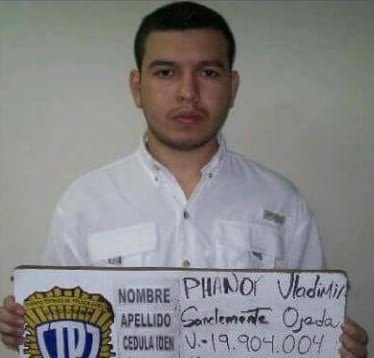
Phanor Vladimir Sanclemente, known as Captain, was the head of the Tren de Guayana until 2018. Credit: Germán Dam's Twitter
Phanor Vladimir Sanclemente, known as Captain, was the head of the Tren de Guayana until 2018. Credit: Germán Dam's Twitter
When the arrest warrants were requested, in 2018, the then opposition deputy Américo De Grazia assured that the measure against the company was a "payback" to dethrone its true owners, two military officers linked to Maduro's repressive machinery who abruptly left their positions after major scandals. The first of them is General Gustavo González López, current director of the Consejo de Seguridad e Inteligencia (Security and Intelligence Council) of the Presidency of the Republic and director of the Servicio Bolivariano de Inteligencia Nacional (Bolivarian National Intelligence Service - Sebin), who by that time had just been expelled from this last position (which he resumed in April 2019) for the death of the Primero Justicia's councilor Fernando Albán in one of the buildings of the institution that González governed.
The other general behind “La Vanguardia” was allegedly Antonio Benavides Torres, former general commander of the National Guard, who was dismissed a day after one of his soldiers shot student Fabián Urbina at point-blank range during an anti-government protest in 2017. That same year, in July, the Attorney General's Office in the hands of the dismissed Luisa Ortega Díaz, charged him "for the alleged commission of serious and systematic human rights violations committed during the demonstrations that occurred in the country." Today, he is a deputy of the Chavista National Assembly.
But Molinos La Vanguardia was not an unknown company to the government. The name of the company appeared in the 2017 Report and Account of the Ministry of Eco-Mining Development after signing a strategic alliance with the General Mining Company of Venezuela C. A. (Compañía General de Minería de Venezuela C. A. - Minerven) "for the processing of gold ore and the recovery of gold, through a CIL-CIP leaching cyanidation plant with activated carbon with the companies: Inversiones el Guayare, C.A., Inversiones la Lucha, C.A., Molinos la Vanguardia, C.A., Asociación Civil Molineros, and Mineros Revolucionarios de la Ramona". At the head of the ministry was Roberto Mirabal. Furthermore, in December 2017 it was the scene of a "historic act", chaired by the then Minister Víctor Cano, who in alliance with the Venezuelan Anonymous Company of Military Industries (Compañía Anónima Venezolana de Industrias Militares - Cavim), gave explosives to miners for underground gold exploitation in 23 authorized areas.
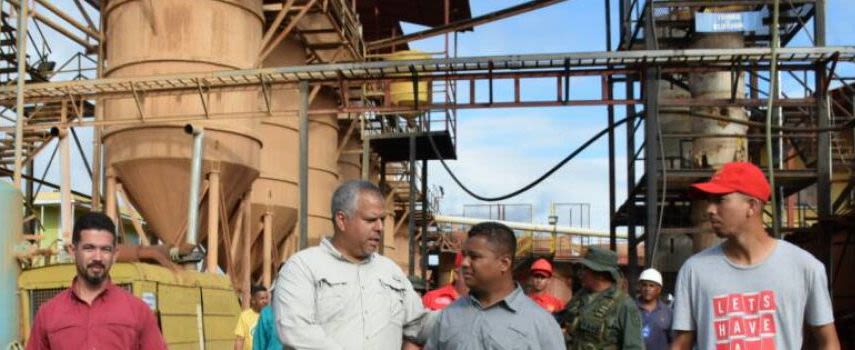
Minister Cano is in the middle of delivering supplies to La Vanguardia plant. Credit: Ministry of Popular Power for Ecological Mining Development
Minister Cano is in the middle of delivering supplies to La Vanguardia plant. Credit: Ministry of Popular Power for Ecological Mining Development
The official announcement of the arrest warrant for "El Tati" came minutes before the former president of the United States, Donald Trump, signed a decree in 2018 to impose sanctions related to the gold sector in Venezuela for the first time. The executive order prohibited US or foreign individuals from making transactions with players and networks accomplices of corrupt economic sectors in Venezuela.
Old mafias
Investigating Goldtex de Venezuela C.A. –founded in 1995– means running into a series of discrepancies from its foundations. The details of its contracting process are unknown and its registration in the National Registry of Contractors was canceled because the system detected inconsistencies in the information and could not validate its update.
However, the most striking of its constitution are not only these details, but the names that were in charge of the firm when it began its operations in the Arco Minero del Orinoco. Its president Gran Alexander Ritchie Silva, 54, and its vice president Eduing Flores Zuloaga, 40, were involved in the case of the "cabillas mafia" (steel bars mafia), which disappeared hundreds of shipments of regulated bars from the Siderúrgica del Orinoco (Sidor) that were supposed to go to the hardware markets of the state industry, but ended up being resold. The main accused for this cause was the sales director of Sidor, Luis Velásquez, who was manager of the customer portfolio of the steelworks, president of the transition commission at the Matesi and Orinoco Iron briquetting plants, and a close friend of the then governor of Bolívar, Francisco Rangel Gómez.
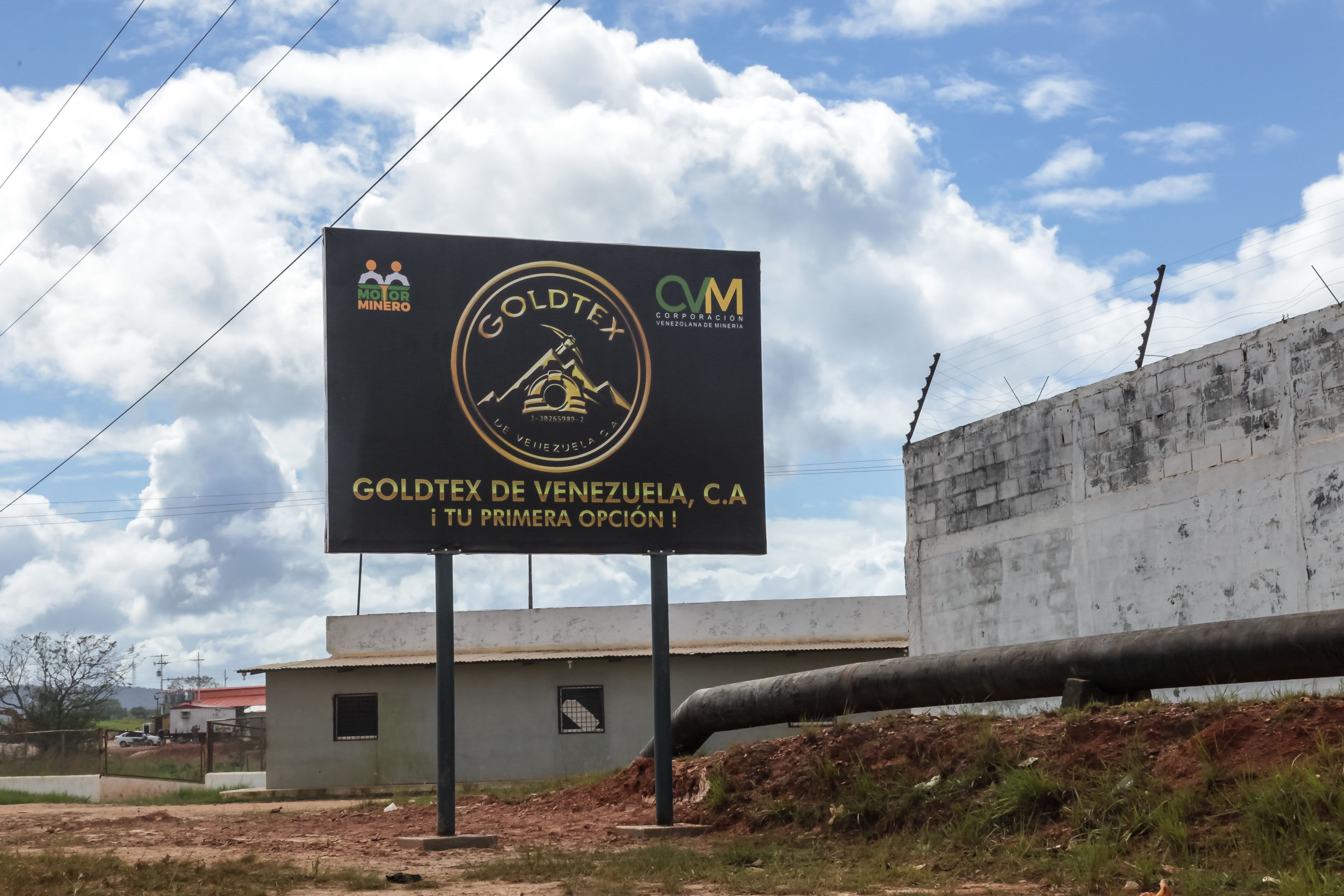
In 2011, the State filed charges against Ritchie Silva and Flores Zuloaga – both domiciled in Ciudad Guayana, Bolívar state – because they were in charge of two Sidor contractors investigated in the case: Degran & Compañía, C.A and Ediperca. They were charged with the crimes of Public Servant Agreement with a Contractor for signing contracts with the state-owned Orinoco Iron without going through bidding processes and other internal mechanisms. In 2014, the case of the two businessmen was dismissed because they allegedly had not committed any crime. That same year, the then judge Jesús Manuel Jiménez Alfonzo, today a magistrate of the Supreme Court of Justice, declared without merit the appeal that the Public Ministry filed against the dismissal of the case.
Ritchie Silva and Flores Zuloaga left Goldtex in 2018 and thus became in the name of Nellys Josefina Ramírez, 52, residing in Ciudad Guayana. The physical address of the company changed, and from having headquarters in the Alta Vista neighborhood of Ciudad Guayana, today it is in the El Porvenir sector, at Kilometer 3 of Troncal 10, between the mining towns of Guasipati and El Callao, Bolívar state.
In 2021, Goldtex changed hands again and today its president is Álvaro Ramírez, 70, with residence in Maracaibo, Zulia state, according to the CNE. Since 2012 its corporate objective has remained unchanged: exploitation, exploration, processing, commercialization, and transport of the mining industry and its derivatives. The economic activity in which it is registered with the SENIAT is "Activities to support the exploitation of other mines and quarries".
Saab, the miner
So much has happened around the Empresa Mixta Sociedad Anónima Mineral Binacional Turkey Venezuela S.A (Mibiturven S.A), that it is difficult to choose a fact to begin its story. It could start with the 15 families that Venezuelan military evicted from their homes in the Santa Bárbara neighborhood, in El Callao, to cede them to the company in 2019; or for the arrest of one of its miners –Alan Miguel Ortega Espejo, 37 years old– who allegedly used the company Inversiones Molinos Nacarette C.A. as a front to process and launder the gold that the "Zacarías" and "Toto" gangs obtained from the extortion they practiced in the area; or point out that, since its creation, it was linked to Alex Saab, the Colombian businessman indicated as a frontman for Nicolás Maduro and currently prosecuted by the United States.
Mibiturven –which does not appear in the RNC and whose public procurement process is unknown– was born from an alliance between the state-owned Minerven (55%) and the Turkish Marilyns Proje Yatirim S.A (45%) in 2018, in order to "develop primary exploration activities in the search for gold deposits, as well as the extraction and exploitation of this mineral" says a promotional publication of the company dated 2022 to highlight the company's achievements. In that same document it is detailed that Mibiturven was behind the reactivation of the Caratal, Camorra, Chocó and Revemin plants, which formerly operated Minerven, as well as the "adaptation and relaunch of operations" of the Colombia, Chocó, Isidora and Simón Bolívar mines.
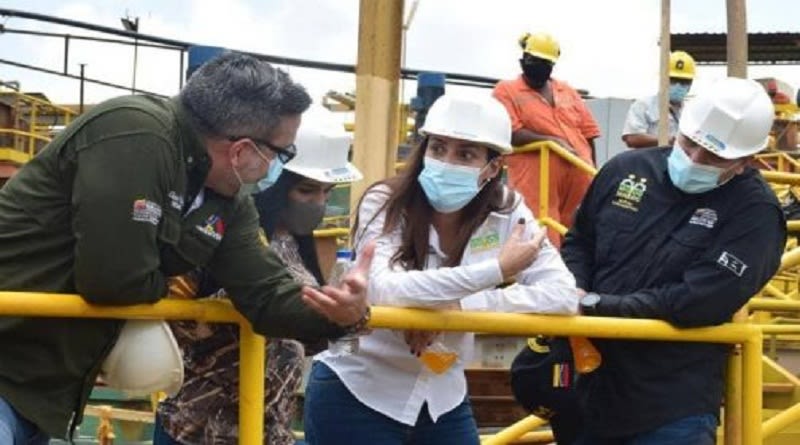
Former minister Magaly Henríquez during a visit to the Chocó plant, in the Isidora mine, of Mibiturven. Credit: VTV
Former minister Magaly Henríquez during a visit to the Chocó plant, in the Isidora mine, of Mibiturven. Credit: VTV
The businessman who fled after associating with the military
The Orizonia Plant is one of the companies in which the Venezuelan military has direct participation in the gold business of the Arco Minero. It was born from the association of the Military Anonymous Company of Mining, Oil and Gas Industries (Compañía Anónima Militar de Industrias Mineras, Petrolíferas y de Gas - Camimpeg) –created via decree in 2016 by Nicolás Maduro– and the Orizonia Group –which initially and according to its registration in the SENIAT, was dedicated to the "retail sale of appliances, furniture, articles and equipment for domestic use in specialized warehouses" and that, subsequently, it added Decree 2.165 to its corporate purpose to be able to participate in the exploitation of minerals.
Orizonia operates within the Bizkaitarra mine, in Las Claritas, south of the Sifontes municipality of Bolívar state, and in 2018 it made headlines because the first press filter that would be used in the Venezuelan mining industry to eliminate tailing lagoons that form during gold production processes arrived there. The arrival was possible because Camimpeg and Minerven signed an alliance with China to bring to the country seven plants equipped with "new eco-friendly technologies".
Although the current board of directors of the Orizonia Plant includes three people, there is a fourth who left the company to save his assets from the sanctions that the United States government imposed on those who sign mining contracts with the Venezuelan State. This information emerges from a report published in 2020 by El Nuevo Herald, of Miami, and indicates that the Venezuelan-Trinidadian businessman Clemente Ricardo Silva Lezama (deceased in 2021) appeared as the majority shareholder of the Orizonia Group until 2019, when he decided to separate from the project.
According to El Nuevo Herald, Silva Lezama claimed to have sold his stake in the Orizonia Plant and showed the media a couple of letters he sent to the Ministry of Eco-Mining Development to make this step effective. However, commercial documents consulted by the US newspaper revealed that in January 2020 there were still two sons of Silva on the board of directors: Klemens Alejandro and Ricardo Leslie Silva, who allegedly owned 80% of the firm's share capital. It was precisely the latter who was present as president of Orizonia when the plant was inaugurated in May 2021, according to a Facebook post by the Vice Ministry of Planning and Development for the Defense of the Venezuelan Ministry of Defense.
Silva Lezama's partnership with the Venezuelan state was not new. Several of its companies based in Puerto Ordaz are in the RNC, although all have been disabled for at least four years because their data was not updated. Companies such as S&S Orinoco Aviation, Consorcio SMT Silva, Servicios Marítimos y Transporte Silva and Silva Shipping Agency, dedicated to air and river transport, were contracted to make transfers to Ferrominera. On the register is also CSL Stevedoring and Transport C.A.
Silva Lezama told El Nuevo Herald as well that given the Ministry's silence on his written requests, he established an agreement with the current president of the Orizonia Group, Americo José Figuera Duerto, to leave the partnership with Camimpeg and receive his investment once the plant began operations. It is unknown whether this return took place before he died.
Figuera Duerto is also the legal representative of American Wellgo and a member of the Asociación Cooperativa Morichal 4563, which signed at least one contract with Ferrominera in 2006. The vice president of the Group is Byron Figuera Duerto, partner of the aforementioned Morichal 4563 and linked to two companies in the United States: Oxiplus Corp and Caroni Cargo Llc.
Eduardo Rivas, the frontman
There is a name that should not be missed when talking about the Arco Minero del Orinoco: that of Eduardo José Rivas, formally identified as president of the two largest mining industrial complexes in the region: the "Domingo Sifontes", in El Callao, south of Bolívar, and the "Manuel Carlos Piar", in Puerto Ordaz, the most important city of the entity. However, informally, Rivas is known as the man who has dominated gold operations in the area since at least 2018 and his power is more linked to his personal relationships than to his good behaviors as a businessman.
Rivas began to sound the same year in which the El Callao complex was inaugurated with the presence of the then Minister of Eco-Mining Development, Víctor Cano. A feature by Armando.Info identified him as a person close to the children of Cilia Flores, first lady of the Republic, and Nicolás Maduro Guerra, the eldest son of President Nicolás Maduro. The piece also assures that, based on the information he provided about the illegal gold trade, "Operación Manos de Metal" (Operation Metal Hands) was set up, which put some “pranes” and gold traffickers in the sights of justice in order to get them out of business. Only a few denounced players were left behind bars.
Equipped with six cyanidation plants – a technology classified by the Venezuelan government as "eco-friendly" – the "Domingo Sifontes" complex has appeared several times in official press releases that praised its production. In June 2018, a month after its inauguration, Cano himself applauded the fact that the complex melted its first 4.4-kilogram gold bar.
"The Domingo Sifontes Industrial Complex not only recovers the #gold from the mercurial sands, but also allows progress in the environmental recovery of the footprint that mining has historically left in that territory," he said in a tweet at the time.
More recently, in June 2020, the Ministry mentioned both industries as the promoters of "a responsible and ecological mining activity, a model with which the engineer Eduardo Rivas has identified" and added that they were "determinants in boosting the national economy" in the middle of quarantine by COVID-19. In October of that year, it was highlighted that Rivas was in charge of the construction of a 1.5-kilometer road corridor in Nacupay, the mining area of El Callao where the complex he presides over is located.
"We are working articulately with the different companies of the Arco Minero del Orinoco, for the welfare and development of our people, this is an initiative of the Domingo Sifontes Industrial Complex and Mr. Eduardo Rivas, who has been an example for other businessmen to join," said the then mayor of El Callao, Alberto Hurtado.
"Domingo Sifontes" has also been mentioned on less flattering notes. Correo del Caroní published in December 2021 that the workers of the complex reported being victims of labor and human rights violations. They claimed that benefits were taken away from them, had unfair wage deductions, and were not regularly provided with uniforms and safety equipment. For making these claims, some were fired, while others were intimidated by members of the General Directorate of Military Counterintelligence (DGCIM), a body that is also responsible for the security of the company, instead of the National Guard.
Sources consulted for this investigation indicated that none of the complexes presided over by Rivas is operating at full capacity.

